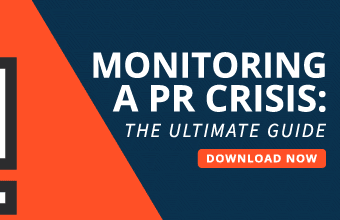As new business challenges emerge in the COVID battle, Americans say they value “caring for others” and “control” more in a pandemic-challenged world—but are showing a distinct lack of trust, particularly of companies, businesses and employers, new research from Deloitte reveals. As tensions continue to rise, the firm’s new report uncovers three behavior clusters of Americans—Protectors, Prevailers and Pragmatists, which make up 30 percent, 40 percent and 30 percent (respectively) of those examined.
“The onus is on organizations to understand the nuanced needs of each cluster in order to meet heightened expectations for trust, safety and connection through improved human experience,” said Amelia Dunlop, chief experience officer for Deloitte Digital, and principal at Deloitte Consulting LLP, in a news release. “With authenticity and insight, organizations can elevate the human experience for every individual, independent of which cluster they identify with.”
The firm’s new Human Experience (HX) research identified trust tensions for each specific cluster:
- Protectors are vigilant and anxious, prioritizing public health.
- Prevailers are confident and resolute, focusing on reopening the economy and supporting local business.
- Pragmatists remain calm and cautious, balancing the tradeoffs between public good and personal welfare.
“Research has shown that each cluster has its own trust tension point. For organizations looking to measure trust and determine their standing with key audiences, Deloitte Digital has developed HX TrustID, a way to measure trust performance that uses proprietary algorithms, advanced analytics and data modeling,” said Ashley Reichheld, principal at Deloitte Consulting LLP and customer, brand and experience practice lead for automotive, transportation, hospitality and services, in the release. “By examining the four signals of trust—transparency, humanity, reliability and capability—we can help organizations better predict customer, employee and partner behavior, versus other loyalty measurements that focus on audience intent.”
Distrust and double standards in pandemic guidelines
The tension of wanting control, but also to care for others and be cared for, has manifested in double standards for pandemic guidelines. For example, 70 percent of Americans want temperature checks for employees of businesses they engage with, but only about half would want the same practice for themselves.
The research also found that nearly two-thirds (60 percent) of Americans don’t trust each other to social distance. By and large, this surge in distrust has prompted an instinctive need for control over personal experiences—for example, 84 percent of consumers surveyed want personal control of cleaning when engaging in an experience such as eating out or shopping.
What humans demand for the “next normal”
The values of “control” and “caring for others” both impact what Americans are looking for in their post-pandemic engagements with brands. Consumers are looking for organizations to take tangible action, such as requiring customers to wear masks (69 percent), offering services such as curbside pick-up or contactless delivery (65 percent) and enabling contact tracing (62 percent).
However, this sentiment is not universal, as 12 percent of Americans took a negative view of businesses and organizations with mandatory mask policies, and 5 percent indicate they will avoid such places entirely.
While for the most part consumers have demonstrated understanding and flexibility throughout the pandemic, expectations for quality and delivering value in the “new normal” have not let up: 51 percent of Americans expect national and global businesses to offer the best quality, selection and prices post-pandemic. Consumers are also twice as likely to say they will support local businesses (47 percent) over those with a national (23 percent) or global presence (18 percent) once they reopen, underscoring the need for larger brands to focus on foundational trust-building.
Virtual vs. in-person preferences by activity
As parts of the country selectively reopen, there is a question of which experiences that have “gone virtual” during the pandemic will remain that way and which will return to in-person. For example, the initial appeal of video happy hours with coworkers and friends may have waned as it inadequately matches the emotional benefit of in-person contact. While more than half (56 percent) of respondents want virtual experiences to feel more “human,” for some virtual experiences, the efficiencies outweigh the benefits of being there in-person.
Beyond the human connection, personal safety and public health are also a top consideration for consumers evaluating what experiences they will engage in in the future. Over one-third of Americans plan to reduce engaging in experiences where social distancing is more difficult.
Top 5 reduced experiences:
The research includes insights from over 28,000 Americans from April to June 2020, collected though ethnographies, focus groups and a 16,000-person survey.















